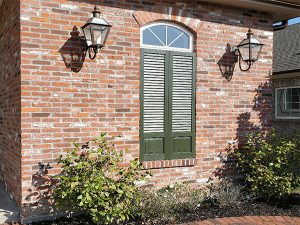Foundation Questions To Ask Your Homebuilder
Your home’s foundation is an important part of maintaining a healthy and vibrant home. When it comes to understanding your home’s foundation it is important as it leads to a dry, healthy and comfortable living space. When building a new construction home, you want to be a part of the decision making process from start to finish. If you are a homeowner and are about to be a part of building your new home, it is a good idea to have a better understanding of your home’s foundation. A good foundation starts with its structural strength, but its design should keep your home dry, healthy and comfortable. Here are some questions to ask your building about your home’s foundation.
What type of foundation will I have for my home?
Here in the United States there are three types of foundations that are used by themselves or a combination. These include slab-on-grade, crawl space and basement. A slab foundation is a concrete floor with footings that are close to the earth and hold the home up. These are usually used in warmer climates that do not have ground freezing. They are the least expensive option of the three in terms of up-front cost and low maintenance. The only downside is there is not enough space for storage.
The middleman is the crawl space which is not right on the ground but not as tall as a basement. It is a shorter perimeter foundation with interior piers that hold the home in place. You can find crawl spaces in areas with deeper frost lines and hill lots. They are less expensive than a basement but cost more than a slab. The good thing about a crawl space is it is easy to crawl into for maintenance or inspections. The drawback is they hold onto moisture.
The basement is the most expensive option but gives you a whole other level of your home. Basements are seen throughout the colder regions of the United States. Although the most expensive option, they do offer living and storage space. Basements can be prone to moisture problems so moisture management is important.
How will my home be protected from liquid water?
Water can be a hindrance for all three types of foundations. The goal is to keep liquid water out of your home. This not only will hurt your foundation but is also bad for your health. Water comes from other sources than just rain, including bulk water presser, capillary action, snow run off and landscaping.
Be sure to waterproof all three types of foundations. For a slab using capillary breaks to stop water flow is a great way to do this. For basements and crawl spaces waterproofing the exterior by using waterproofing membrane, footing drains, damp proofing, or drainage mats works.
How will my home be protected from soil vapor?
Vapors can seep into any type of foundation by coming through the home’s envelope from below ground. This can cause moisture issues including floor covering and coating failures, mold growth, poor indoor air quality and inefficiency of your HVAC.
Stopping water vapor is different from stopping water in liquid form. If you have a slab, then using a water vapor barrier will cover the exposed earth and stop the vapor from coming into a crawl space or slab. Radon is another vapor that is hazardous to your health that can also seep in from the foundation. This can be corrected by stopping its movement and sending it away from the home which is usually done with venting systems.
What products do you use?
This is very important because a home’s integrity starts with its foundation. You want to use the correct materials so the foundation lasts a long time. Remember a foundation is not an easy thing to replace and will be very costly. Homebuilders in your area will know the best option to work with. Remember to also ask if they have a warranty or if your home warranty covers the foundation.

